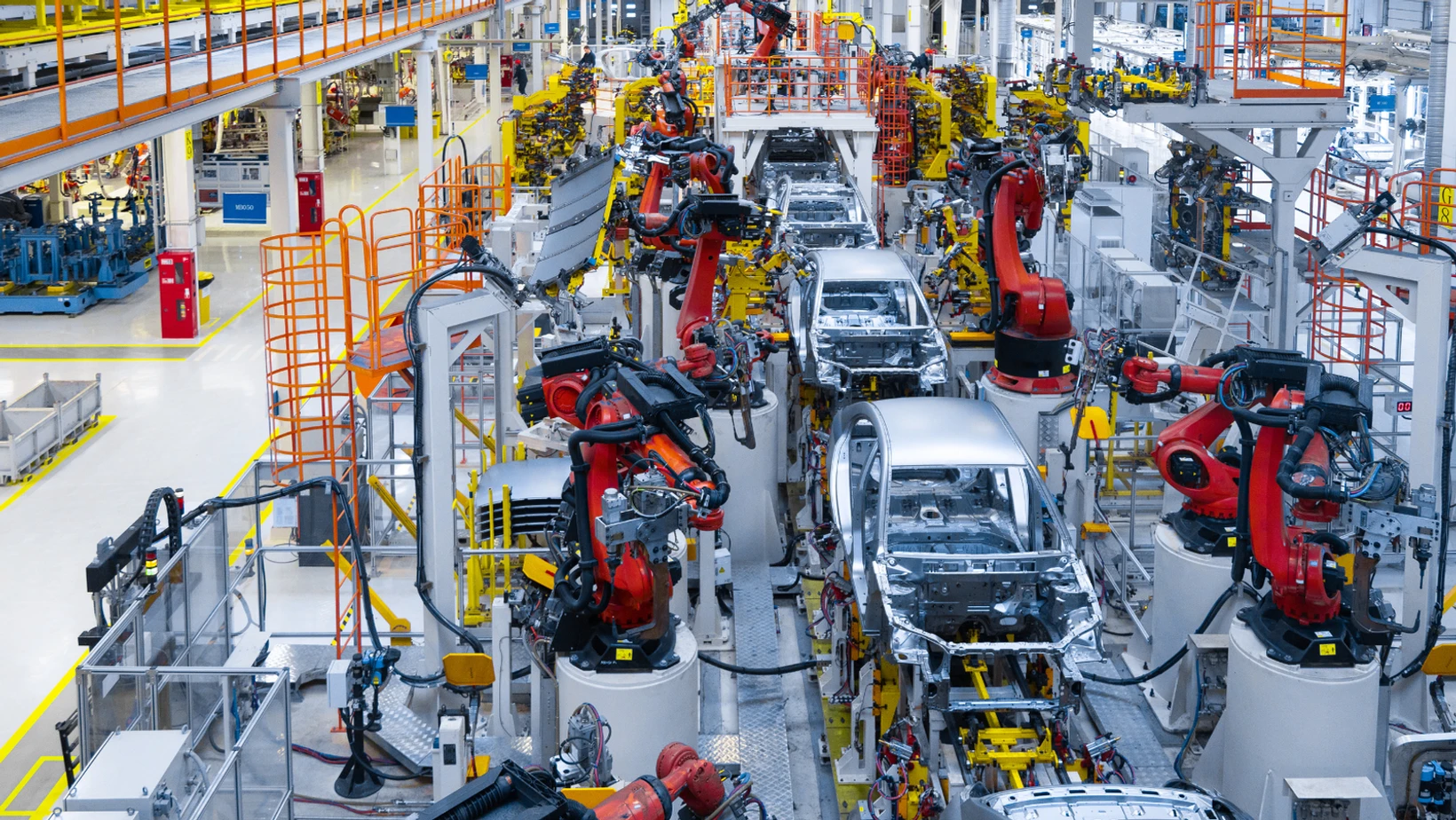Automotive manufacturing companies need a specialized ERP to manage complex production processes and meet customer expectations. However, there are many ERP options to choose from that promise to boost productivity and create a competitive edge for businesses in this sector.
IFS offers field service capabilities but may lack depth compared to other solutions like Plex, IQMS, and QAD for companies that require more detailed process manufacturing. It may also struggle to support diverse business models, especially in projects and engineer-to-order-centric companies.
C-suites should serve as advocates for their project, convincing internal teams that this effort is worthwhile and keeping morale high to complete it.

Electrification & Increase in Vehicle Sales
As the automotive industry progresses toward electric and autonomous vehicles, there’s a growing need for businesses to be more agile than ever. An ERP system is a key enabler of this agility. It helps automakers improve the quality of their output and simplify internal processes. Ultimately, this aids in meeting customer needs and preserving their competitiveness in the marketplace.
An ERP system with the appropriate automotive-specific features can enable your company to meet IATF 16949 quality standards and change with the times.The system also provides you with a clear roadmap for your company’s future.
Aside from being a great enabler of operational agility, an ERP system can provide a secure and centralized repository for all your digital documents in the automotive industry. This means that your employees can access the information they need, whenever they need it.
It can also save your expenses by automating and simplifying procedures.This enables you to manage and track inventory and orders more efficiently, reduce your data entry errors by eliminating the need for manual inputs, and increase productivity. Moreover, you can easily implement new policies and procedures in your automotive business with the help of an ERP system.
Lastly, an ERP solution can also give you the ability to monitor and track your employees time and attendance records, handle your employee payroll, auto-deduct deductions from their salaries, generate various reports for different purposes, and more.
5G & Connected Cars
For automotive manufacturers, the progression towards electric and autonomous vehicles isn’t just a fad; it’s a clear course set for the industry’s future roadmap. This new direction demands agility in production and distribution while maintaining precise inventory levels and meeting customer expectations.
This is where ERP systems can help. By providing real-time data, these applications can optimize resource allocation, streamline operational output, and reduce waste. They also allow for better planning and forecasting, reducing the need to maintain a high level of inventory and improve working capital.
ERP systems can also improve labor productivity through real-time data and analytics tools, which allows for adjustments in staffing levels and machinery usage based on actual demand. This results in higher efficiency and lower costs. They can also track energy consumption and implement measures to enhance energy efficiency, contributing to cost reductions and environmental sustainability.
Moreover, automotive ERP software can identify quality issues and address them promptly to minimize product defects and wastage. These applications also provide traceability capabilities that ensure compliance with industry standards and regulations regarding product quality.
Lastly, they can integrate with testing equipment to automatically feed real-time quality data into the system. This enables more accurate analysis of manufacturing processes and reduces manual data entry errors. This, in turn, reduces the number of defects and rework, thereby improving production efficiency.
Autonomous Vehicles
With a specialized automotive ERP solution, vehicle manufacturers can accelerate time to market, connect with stakeholders and manage compliance. They can also improve product design, collaborate across department silos and develop innovative ownership models for the future of mobility.
Without sacrificing data integrity, a strong automotive ERP system can facilitate a smooth transition from present databases, spreadsheets, and systems. It can then be integrated with important tools such as CRM, customer service and marketing software to establish a connection between the various internal business processes.
The ability of an automotive ERP system to incorporate CRM and HRM functionalities further enhances its overall value, contributing to greater efficiency, cost control, and a heightened focus on quality assurance. By offering real-time data on workforce performance and productivity, these solutions can help manufacturers optimize resource allocation, identify training needs, and make strategic decisions for enhanced operational excellence.
Additionally, automotive ERP solutions can support just-in-time (JIT) manufacturing practices and reduce inventory costs by aligning production with actual demand. This can help manufacturers avoid bloated working capital and maximize the use of materials, thereby improving profitability.
In addition, these systems can track supplier performance in real-time and facilitate communication and collaboration with suppliers, minimizing disruptions and reducing lead times. This agility can be a huge benefit when dealing with changing consumer demands and supply chain uncertainties, including skilled labor shortages, supplier delays, and escalating material costs.
Shared Mobility Model
The automobile sector is dealing with several issues, such as shifting consumer demand and supply chain interruptions. ERP software can assist in resolving these issues. Businesses can guarantee high-quality products at lower operating costs and increased profitability by simplifying production processes and putting in place the appropriate systems.
Using an ERP in the automotive industry also improves customer support by enabling them to provide proactive and effective solutions for any issues that customers may face, resulting in improved customer retention rates. The system also offers other business benefits, like simplifying inventory management and allowing teams to easily view upcoming orders to ensure raw material delivery is synchronized with production requirements.
ERP systems for the automotive industry have robust and customizable features that are designed to support a variety of workflows and business models. They can integrate all the data from various departments into a single platform for easier decision-making and to ensure that all the processes are running smoothly.
Additionally, implementing ERP in the automotive industry can reduce the risks and time required to implement projects. This is because most of the automotive-specific capabilities that a vanilla ERP solution lacks can be added as add-ons. NetSuite is a leading Cloud ERP for the Automotive Industry. It has a robust feature set and localizations in over 80 countries, which make it a top choice for growing companies.
The adoption of automotive ERP software represents a significant paradigm shift for vehicle manufacturers. These systems create a single platform for data management, simplifying processes and maximizing resource use by integrating essential functions across the company.
Overall, automotive ERP software serves as a powerful catalyst for increased efficiency, agility, and profitability within the complex ecosystem of vehicle manufacturing. As the industry continues to evolve, these integrated systems will play a critical role in enabling manufacturers to navigate challenges, seize opportunities, and maintain a competitive edge.







